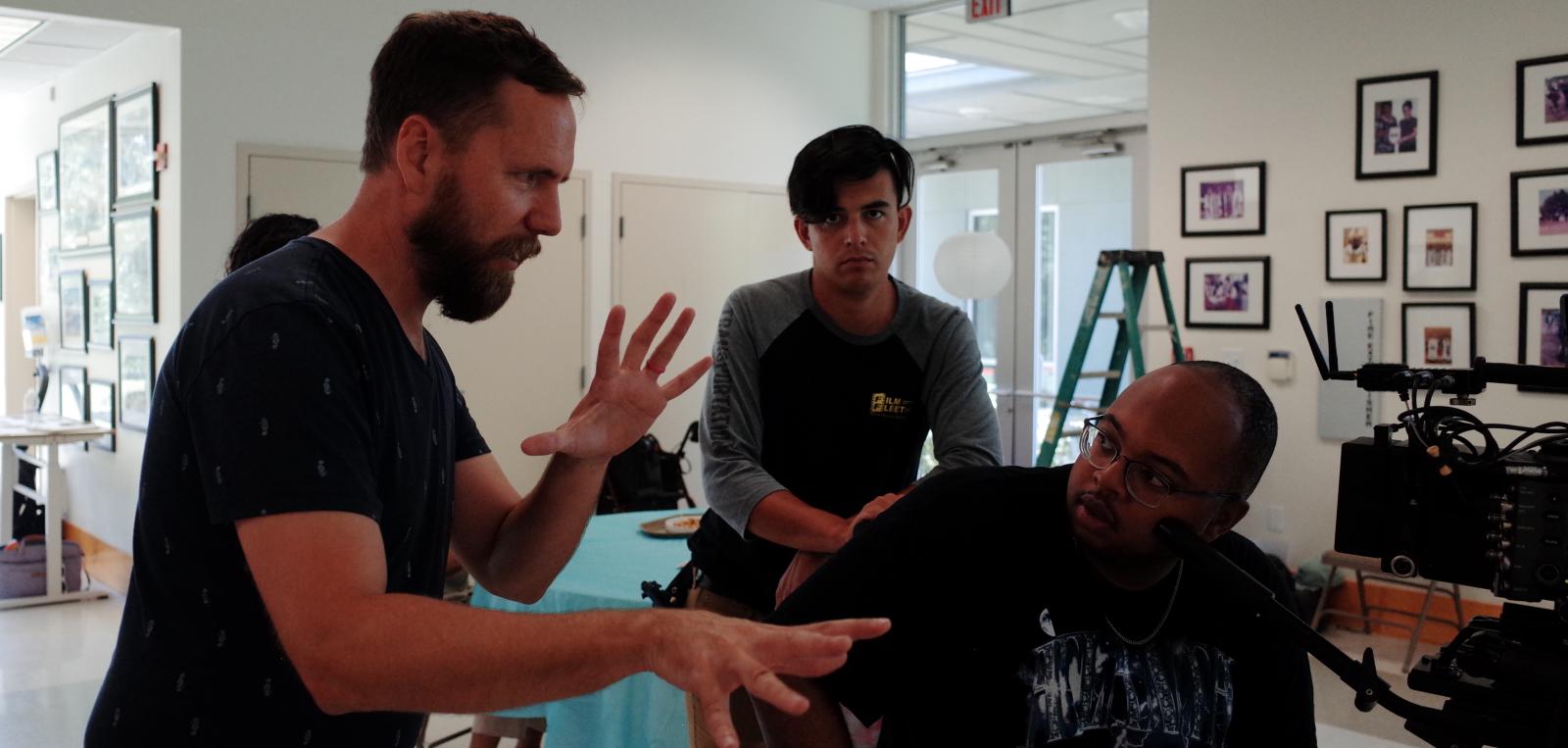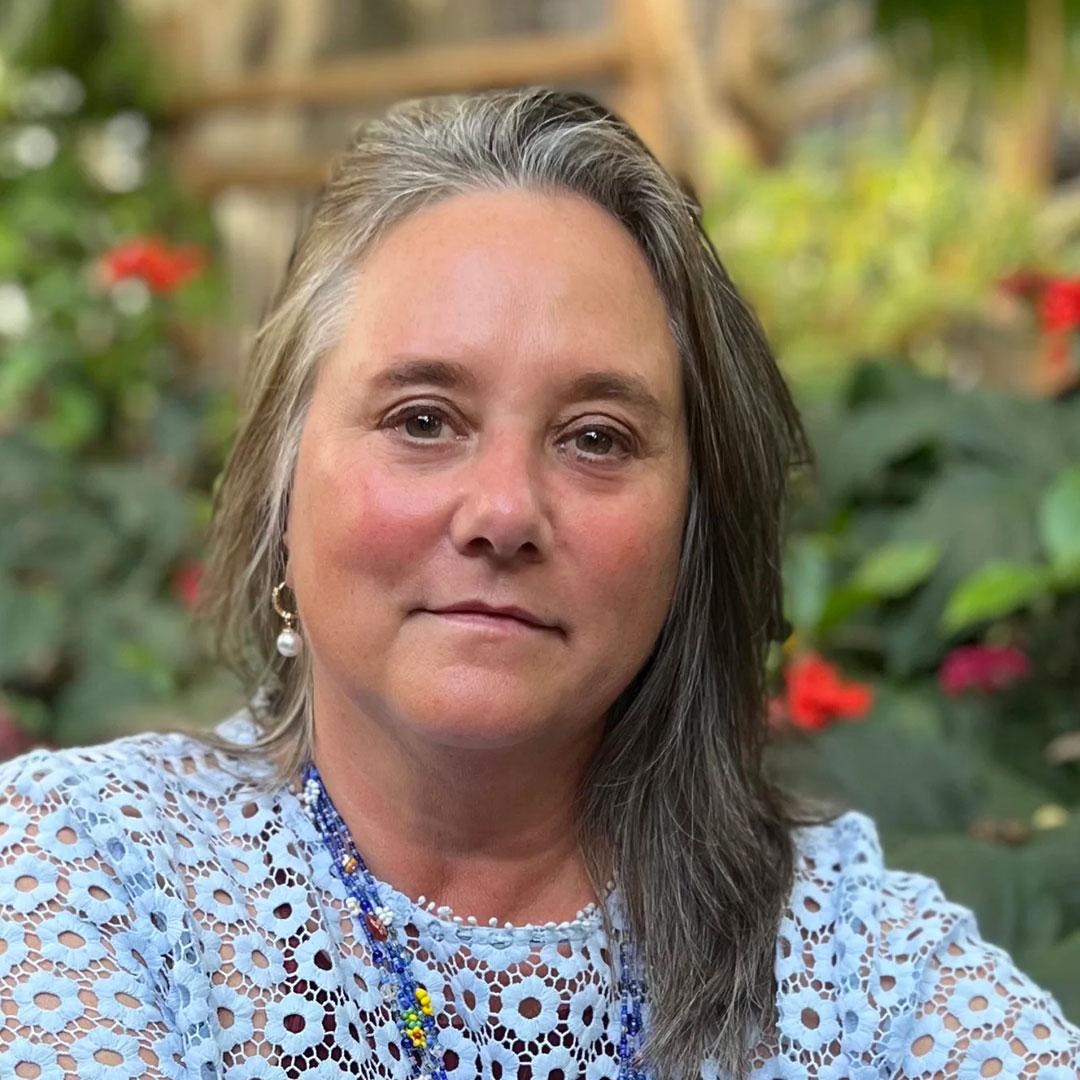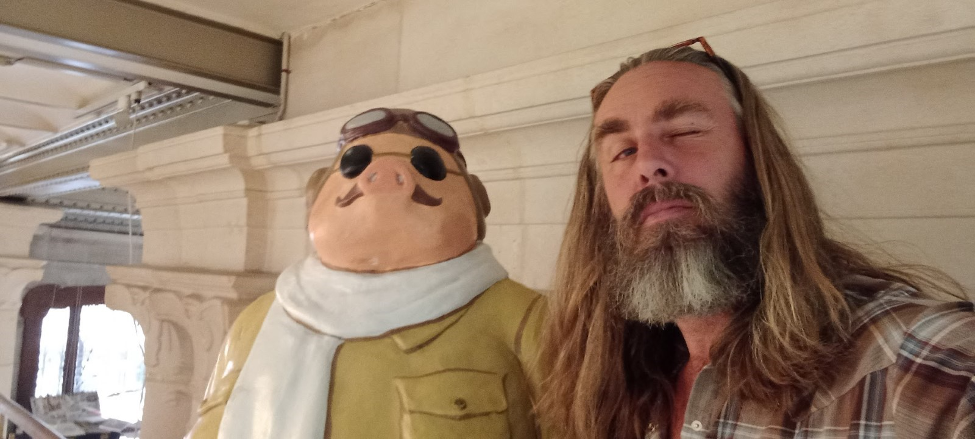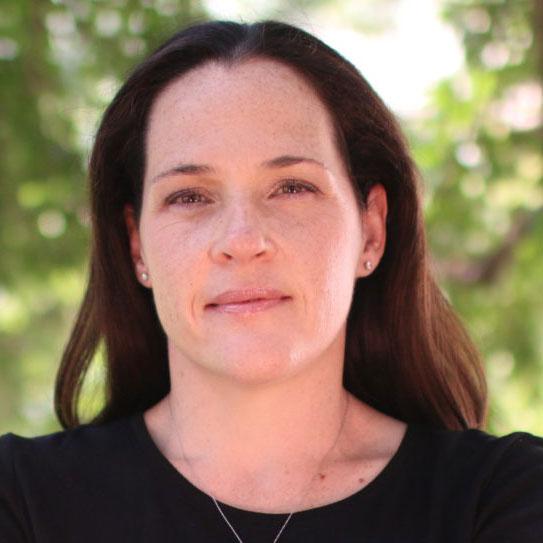Faculty Development Award
Published Fall 2023
The Inaugural Recipients of the Faculty Development Award have been announced! Congratulations to all of our wonderful Moody faculty and staff members!

Micah Barber, Associate Professor of Practice, Radio Television Film
“I loved being compelled to apply some of the short film lessons I propound in the classroom, and see how they hold up.”
Radio-Television-Film Associate Professor of Practice Micah Barber wants to teach students how they can imbue stories with creativity and empathy. As an inaugural recipient of the Faculty Development Award, he was able continue work on his latest dramatic short film LIGHTHEART, which he wrote and directed this summer. Moving between the parallel child and adult worlds of a father and daughter and touching on questions of mortality and permanence, this three-day film shoot involved approximately 40 people in the cast and crew – including a dozen UT grad students, undergrads, and alumni!
“I am truly grateful to be one of the inaugural recipients of the professional-track FDA. The FDA enabled 40+ people to collaborate on a meaningful creative endeavor that would not have existed otherwise, and that will spark countless conversations for audiences as well as students in my classes.”
While developing feature-length projects is a regular part of Barber’s outside professional work, taking a short film into production this summer was a surprising treat. It gave him the opportunity to collaborate on set with a talented young crew and was a good chance to revisit the specific quirks of the short film medium – a format that many RTF classes utilize!
“When you only have 10 minutes or less to tell a story and build characters, everything becomes significant. And that’s something I really want to impress upon my students.”

Karen Kocher, Professor of Practice, Radio Television Film
“Teaching students how to produce impactful and accessible materials that will go on to educate others about environmental history is one way that I contribute to the larger environmental movement.”
Radio-Television-Film Professor of Practice Karen Kocher has been deeply invested in educating both UT students and the Austin community at large for decades – she even has footage dating back to the 90s to prove it! Being an inaugural recipient of the Faculty Development Award allowed her to continue work on a new documentary film about the creation of the Barton Creek Wilderness Park. This film –the latest part in a series about Austin’s environmental history– will contribute to a larger conservation conversation by adding to an archive of materials that can be utilized by learners at all levels.
“I’ve produced work the entire time I’ve been teaching at UT and this film is no exception. My teaching method goes hand-in-hand with my creation process. As a professor of practice, I teach primarily through mentorship and working with student interns –including undergrads, graduate students, and even some of my former students– on projects that will help them gain the kind of experience they will need after graduation.”
Aside from university students, Kocher has also developed an education center at Barton Springs that creates an interactive theater experience and allows community members to explore any topic from multiple perspectives. Her project has even launched a new Austin Independent School District curriculum, “which has integrated it into thirty-four AP Environmental and Aquatic Science classes.”

Benjamin Bays, Associate Professor of Instruction, Radio Television Film
“While one class teaches you how to do animation, another class will teach you about theories of representation or the cultural spaces surrounding animation. These are currently two different conversations, but I want to have both with my students.”
Radio-Television-Film Associate Professor of Instruction Ben Bays is working to integrate history and theory into his classes on animation practice. Being an inaugural recipient of the Faculty Development Award allowed him to visit the places where mass media began in the West with a grand tour of Europe through the lens of comics and cartoons. After visiting 29 different cities in 20 days, Bays no longer has to mine the internet for class materials because he came home with an entire suitcase full!
“Part of what I want to bring back to my classroom is not just the knowledge and materials, but also relationships, connections, and networks with new people. As I’m travelling, I’m thinking about how I can bring someone to UT as a guest speaker, or how I can bring students to this person in terms of a study abroad program.”
Inspired by the intertwining of media, art, technology, and culture throughout his travels, Bays is also considering how early inventions like the Gutenberg Press not only serve as a prelude to all of the fields housed in Moody, but connect to many other disciplines outside of Moody.
“While I might evaluate a Spanish comic from an RTF perspective, colleagues in the Department of Spanish and Portuguese or the College of Fine Arts are going to see it in a completely different way. Who knows, earning this FDA may have been the first step towards developing a new Bridging Disciplines program.”

Kate Winkler Dawson, Professor of Practice, Journalism and Media
“The more outside projects that I do, the more experience I have to bring back to our students. Staying an active journalist is the key to my success in the classroom.”
Journalism Professor of Practice Kate Winkler Dawson is currently writing her latest book –Wicked Creatures: One Murder Victim, Two Authors, Two Centuries Apart and the Birth of True Crime– about a woman who might have been murdered by a Methodist minister in 1830s New England. Being an inaugural recipient of the Faculty Development Award allowed her to take three different research trips to the Northeast over the summer and spend time in select archives to collect information for the book.
“I’m so honored to be one of the inaugural recipients. Every narrative nonfiction project that I do helps inform my teaching. The students learn a lot from my experiences, which are all based in real world work.”
As her fourth narrative nonfiction book, Wicked Creatures is yet another outstanding product of Dawson’s passion for educating others about historical crime in an accessible and enjoyable format. Interested in learning more about the deadly London smog of 1952, forensic scientists in 1920s California, or a Gilded Age psychopath who even Mark Twain wanted to spare? Check out Dawson’s three previously published books here!

